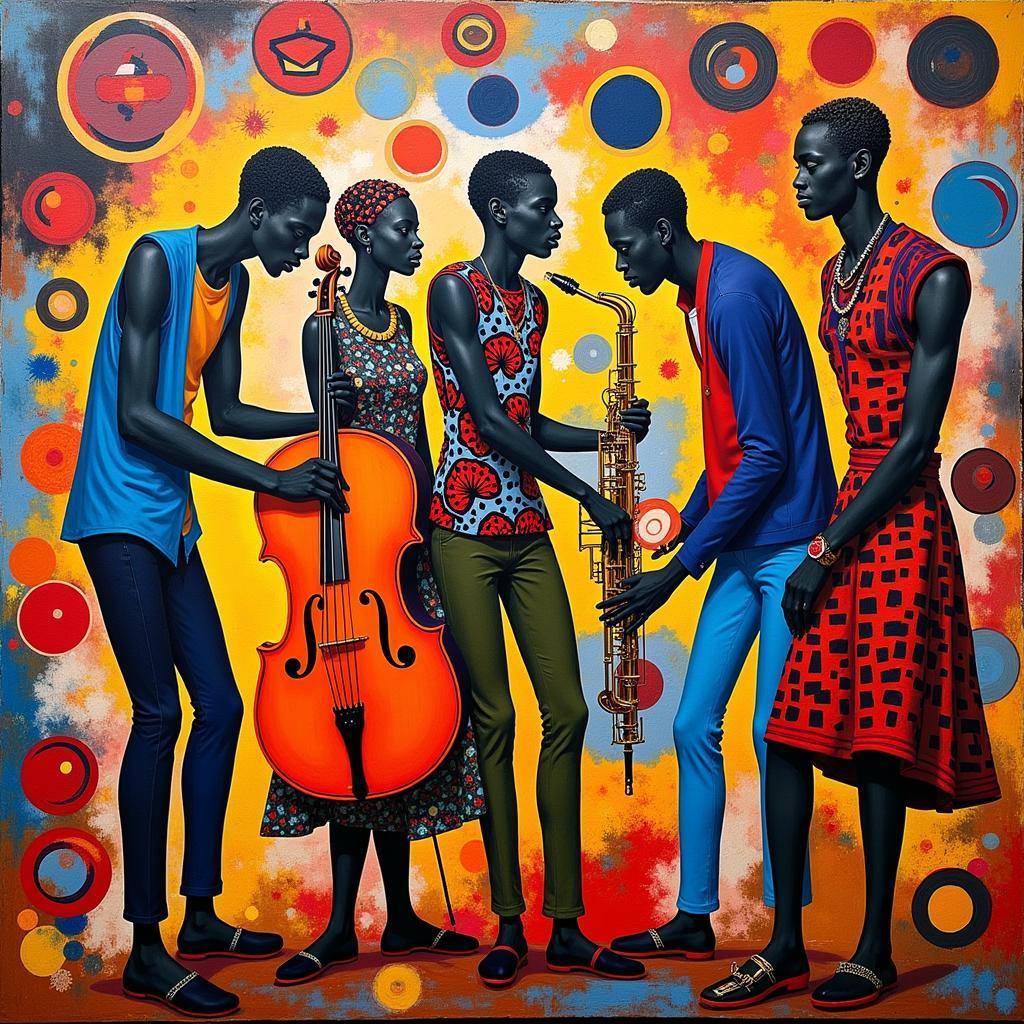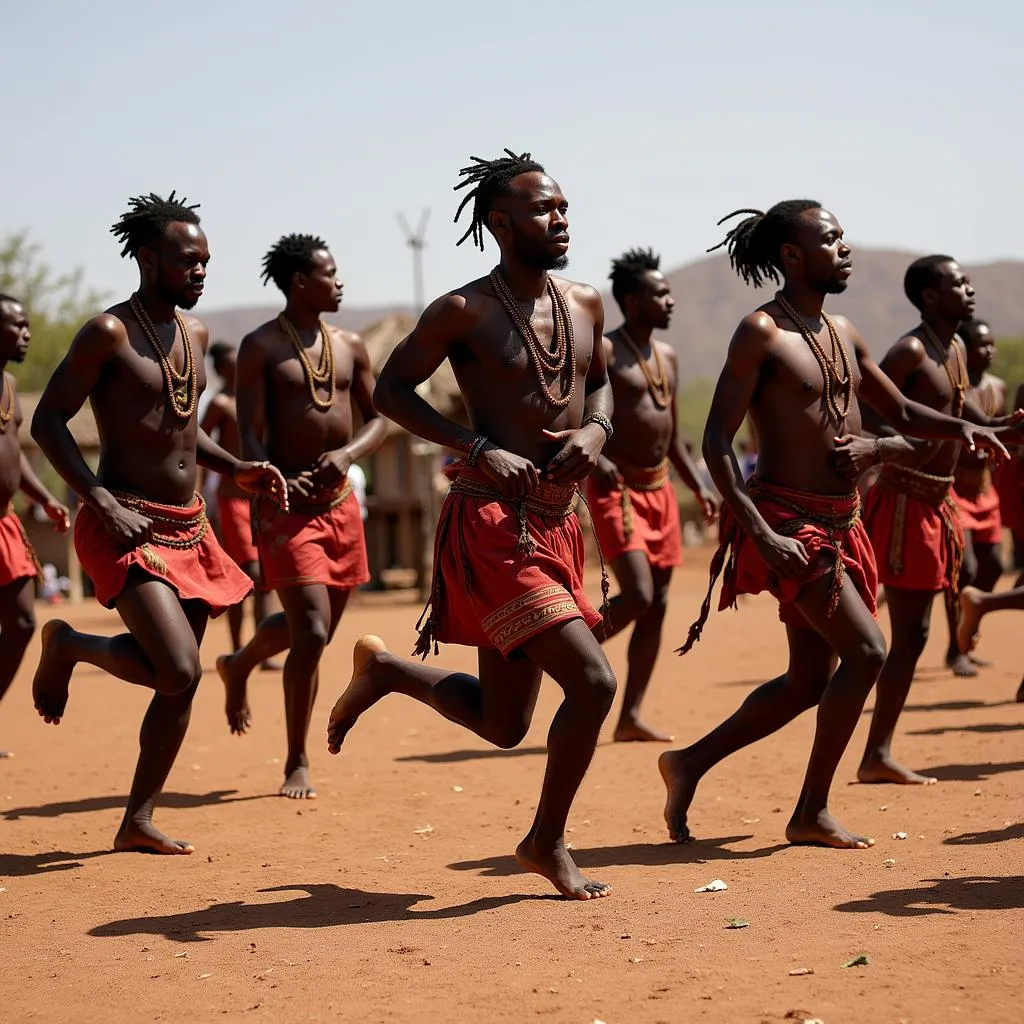Understanding the Term “African Negro”: A Journey Through History and Culture
The term “African Negro” is a complex one, laden with historical baggage and evolving meaning. This article delves into the origins and usage of this term, exploring its significance within the context of African history, identity, and the global narrative.
The Etymology and Early Usage of “African Negro”
The word “Negro” originates from the Spanish and Portuguese word “negro,” meaning “black.” Historically, it was used to denote people of African descent. In the context of the transatlantic slave trade and colonization, the term “African Negro” became widespread, often used to categorize and dehumanize enslaved Africans. This early usage reflects a period of racial classification and prejudice, which unfortunately impacted perceptions of African identity for generations.
Shifting Meanings and Cultural Context
The meaning and usage of “African Negro” have changed significantly over time. While once commonly used in academic and official contexts, it is now largely considered outdated and offensive due to its association with slavery and racial discrimination. The preferred terminology today emphasizes the diversity and richness of African identities, focusing on specific ethnicities, nationalities, or the broader term “African” or “Black African.”
about african negro people life
“African Negro” in Historical Narratives
Understanding the historical context of “African Negro” is crucial. It helps us comprehend the power dynamics and ideologies of the past. Examining historical documents, literature, and accounts that utilize this term provides valuable insight into the social and political landscapes of different eras.
The Impact on African Identity
The term “African Negro,” especially during periods of colonialism and slavery, contributed to the suppression of diverse African identities. It served to homogenize a vast continent with a multitude of cultures, languages, and traditions. This impact is still felt today as communities strive to reclaim and celebrate their unique heritages.
about congo african negro people life
Reclaiming and Redefining African Identity
Moving beyond the legacy of “African Negro” involves recognizing and celebrating the diversity within the African continent. This involves supporting initiatives that promote African languages, arts, and cultures. It also means acknowledging the agency and resilience of African people throughout history.
Modern Perspectives and Terminology
Contemporary discourse surrounding African identity emphasizes self-determination and the rejection of imposed labels. Terms like “African” or “Black African,” along with specific national or ethnic identities, are preferred. This reflects a shift towards more inclusive and respectful language. Dr. Amani Nkosi, a prominent historian specializing in African studies, states, “The richness of African identity cannot be captured by a single, historically burdened term. Embracing diversity and individual self-identification is key to moving forward.”
african american negro spirituals and slave songs
Conclusion: Moving Beyond “African Negro”
The term “African Negro” carries a heavy historical weight, inextricably linked to periods of oppression and misrepresentation. While understanding its historical context is important, moving forward requires embracing more inclusive and accurate language that reflects the diverse tapestry of African identities. Let’s celebrate the rich cultures, histories, and experiences that define the continent and its people, leaving behind the outdated terminology of the past.
FAQ
- Why is the term “African Negro” considered offensive?
- What are appropriate terms to use instead of “African Negro”?
- How did the term “African Negro” impact perceptions of Africa?
- What are some resources for learning more about African history and culture?
- How can I contribute to positive representations of Africa?
- What are some common misconceptions about Africa and its people?
- How can I learn more about specific African ethnicities and cultures?
Scenarios and Additional Questions
What are the social implications of using outdated terminology when discussing African identity? How can respectful dialogue and education promote a more accurate understanding of African history and culture? What resources are available for educators seeking to teach about Africa in a sensitive and informed manner?
For further information, explore these related articles: african american cinema conventions, african american synonym.
When you need assistance, don’t hesitate to contact us. Call: +255768904061, Email: [email protected], or visit our address: Mbarali DC Mawindi, Kangaga, Tanzania. We offer 24/7 customer support.


